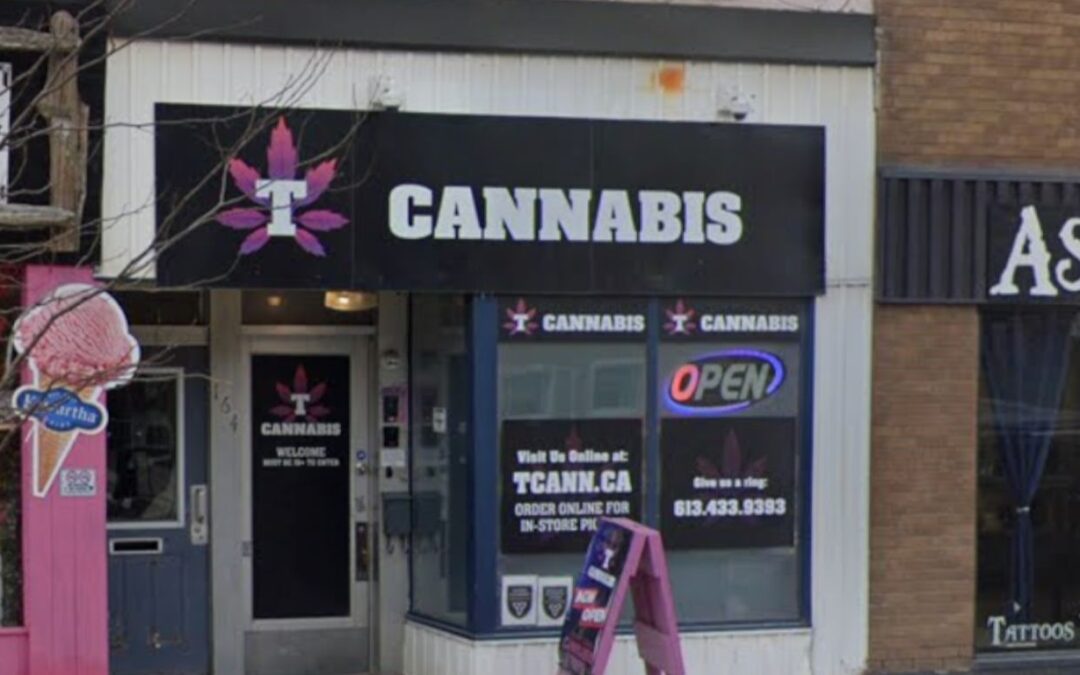
by Grow Up Conference | Nov 25, 2024 | Media Partners, Stratcann
Police in Renfrew, Ontario are looking for three suspects following a robbery at a cannabis store on November 23.
At around 10:10 pm, the Renfrew Detachment of the Ontario Provincial Police (OPP) responded to an alarm at a cannabis store called T Cannabis on Raglan Street.
Police say around $10,000 worth of cannabis and $2,000 in currency was stolen from the business. The three males were reportedly wearing all black and partial face coverings.
There have been other reports of robberies and burglaries of cannabis stores in different parts of Canada. On November 19, Calgary Police were asking for help identifying a suspect related to cannabis store robberies in Edmonton and Calgary. On November 6, police in Edmonton shared a similar call for assistance in a different robbery with different suspects.
On November 14, Calgary Police said they had found and charged a man involved in several cannabis store robberies in recent months in the city.Police in London Ontario are looking for suspects involved in a shooting at an unlicensed cannabis shop around 3 am on November 24.
Featured image via Google Maps.
Related Articles
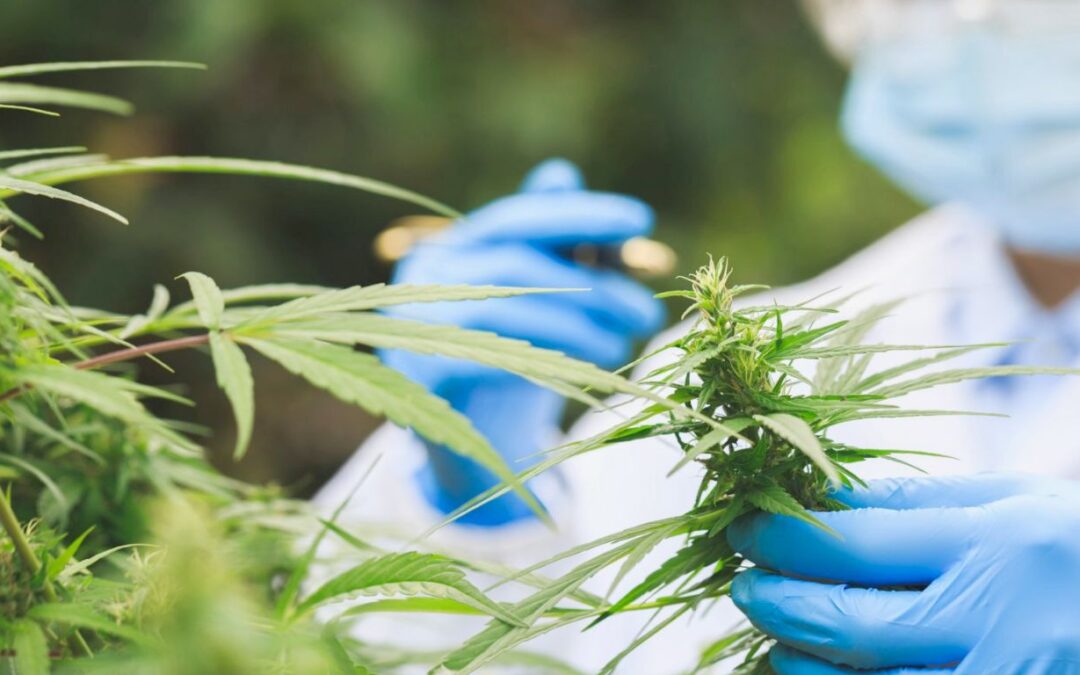
by Grow Up Conference | Nov 25, 2024 | Media Partners, Stratcann
Brock University in St. Catharines, Ontario, has received an analytical testing license from Health Canada.
The license will allow researchers at Brock to analyze cannabis samples for these products’ chemical and biological components for effectiveness and safety.
Testing will take place using equipment within the Brock-Niagara Validation, Prototyping and Manufacturing Institute (VPMI).
“The cannabis analysis license truly opens the doors for the types of support that the VPMI can provide for the industry across the Niagara region, Ontario and Canada,” says VPMI Scientific Director and Associate Professor of Chemistry Paul Zelisko.
“The licence will also permit the VPMI to support stakeholders in typing cannabis strains for more targeted and personalized applications and to help those within the industry to find value added compounds in waste materials to promote a more circular economy,” he adds.
These waste materials can include cannabis leaves, stems and roots. Zelisko says.
“Discovering valuable compounds in this waste material can help a company mitigate costly disposal fees and/or develop new revenue streams,” he says.
The testing will also help companies look into the addition of particular flavours and scents to their cannabis edible, beverage, and vaping products to ensure products remain within Health Canada’s allowable THC limits.
Brock Acting Vice-President, Research Michelle McGinn says the new license is “a milestone” for Brock University and the Niagara region.
“It opens a new frontier for cannabis research that has immense implications for public health and economic growth,” says McGinn. “Consistent with VPMI’s mission, we are applying our specialized knowledge and state-of-the-art equipment to solve real-world challenges and thereby demonstrating how science and business flourish together.”
Health Canada has also renewed a research-related cannabis license granted to Brock University in 2019, one of the country’s first universities to receive a cannabis-related research and development license.
That license allowed Cool Climate Oenology and Viticulture Institute (CCOVI) researchers and local industry partners to identify plant virus infections in cannabis and other developing cannabis-infused drink technology.
An analytical testing licence from Health Canada allows for activities such as testing for chemical contaminants, microbial contaminants, cannabinoid content, dissolution or disintegration, sterility, stability testing and/or pesticides.
Health Canada currently lists 136 laboratories as being authorized to conduct analytics testing under the federal Cannabis Act. Brock’s licence was issued on October 24, 2024.

by Grow Up Conference | Nov 25, 2024 | Media Partners, The New Agora
Rewriting the Script of Life
By Julian Rose
This is a good moment to think big.
Big things are happening on the world stage – but most only involve a change of emphasis, a reordering of the standard power play conducted within the deep state’s global field of influence.
Don’t confuse this ‘Reset’ with the deeper change which is taking place underneath. Although they do overlap at times, they are very different happenings.
The World Economic Forum version is based upon the power play of a number of despotic billionaires, gathering behind them a coterie of political, corporate and technocratic ciphers having no spine and no interest in operating outside the standard field of financially rewarding slavery.
This motley cabal is going nowhere other than to a different corner of the anti-life cul-de-sac within which they permanently operate.
They are a self interested force based entirely on ‘taking’. Draining the life force of its vigour and, whether consciously or unconsciously, fixated on destruction and control.
In amongst their dark endeavours a glimmer of light occasionally seems to show itself – but this is a chimera, because where suppression, greed, control and death form the fundaments of the policies being adhered to, no emanation of light is possible.
Collective values resonating with emanations of light belong to a completely different realm.
They set their life course on cooperation, instead of division. Empathy, instead of alienation. Peace, instead of war. Nurturing, instead of stealing. Truth, instead of lies. Love, instead of hate. Justice, instead of criminality. The formation of life, as opposed to a cult of death.
You will find such light only where the values being expressed are the antithesis of the inhuman brutality adopted as the means to become ‘successful’ within the dominant corporate and billionaire based model of the modern world.
I am not saying that there are no individuals operating within such globalist structures incapable of rising above their dark goals; there are of course, and their distinctive humanitarian qualities are to be applauded.
What I am saying, is that those who have developed proper conscious awareness and who resonate with the light, must recognise that their role is to now step forward to completely rewrite the script of life. To form the vanguard of those determined to lay the foundations of a new society.
They must place the positive powers of humanity at the centre of all aspirations and goals that form the fundamental basis of human education – and indeed, human existence. Presenting a fresh blue print for what society is all about and where it wishes to go.
This means setting in motion a reversal of the situation in which schools, universities, and career influencers teach the failed model of local, national and global conformism. A script that further exacerbates the self destructive pattern of our misdirected collective existence.
This failed model includes religion,whose carefully controlled dogmas have been and remain the prime cause of often brutal divisions across the full spectrum of mankind.
So now, while cracks in the power money control system are widening, we have to seize the moment to set out a purposeful vision of what it is that will rise up to vanquish and ultimately completely replace the dystopian prison within which our present world has been incarcerated.
This vision can only be brought to life via an unremitting desire to realise in ourselves – and in the outside world – the manifestation of truth. A deep determination to articulate in words and deeds, that which flows out from the heart, thereby illuminating the way ahead.
A true vision cannot be mind based. The mind is a beautiful and vital instrument, but operating on its own it turns into a calculator; pulling towards a digital, abstract and material view on how to organise life. It tricks us into following an alien and essentially reductionist form of logic, lacking spontaneous acts of generosity, warmth and inspiration. The true expressions of an unblocked life force.
The entire toxic EMF powered instant messaging addiction, is a mind creation. And mind disengaged and removed from heart leads to madness.
The Internet of Things; the Hive Mind; the ‘Digitalisation Disease’; the IT sterilisation of diverse living entities and the entire agenda of The Great Reset, the Fourth Industrial Revolution and Green Deal – are all a manifestation of mind cut-off and alienated from the heart and from the spiritual.
At its extreme this takes the form of genetic engineering the human and environmental gene pool; influencing and altering the behaviour of the cells and neurons of the human brain and an obsession with robotic and transhuman life distortions.
So let us be done with this obscene cult of the mind. We humans are warm blooded, social beings, our instinct is to help each other in times of difficulty and to celebrate together in times of joy.
Love lives in our hearts and our hearts connect directly to the supreme progenitor of life.
Our grand vision, our revolution, comes to us from the life source itself, the central nucleus of all existence. Provided we feel connected-up, we know what needs to be done in order to follow and fulfil the potential gifted to us.
This is called ‘the Path of Truth’. Or in Eastern esoteric schools ‘The Way’ (The Tao). And to determinedly follow it means to also rewrite the script of life.
There can be no woolly ‘New Age’ compromise here. The path of truth remains an internalised chimera until it is expressed in existential pragmatic actions that lay the solid foundations of a spiritually guided new society.
The job of laying these foundations involves standing in the fullness of our heart-mind united power. Recognising that the only way out of the Minotaur’s mind labyrinth is to adhere to that deeply intuitive navigational aid which ensures every crucial decision of our lives only comes direct from Source.
One does not know the composition of ‘the way’ until it reveals itself. There is no predestined formula to follow – as is the case with our fixed education curriculum. Taking The Path of Truth involves a brush with the unknown, a stepping into the infinite.
However, there are signposts to guide us in this grand adventure. Tried and tested spiritual practices which have the vital role of nurturing the development and realisation of our innate mental, spiritual and physical potentialities.
Rewriting the script of life is the absolute prerogative of an evolving humanity, yet it can only be done by fully embracing the fact that our existence here on earth is solely for the purpose of fulfilling our mission as conduits of the Supreme Consciousness.
Above all else, it is this realisation that will lead to the complete metamorphosis of life on earth and hasten the much anticipated dawning of a deeply fulfilling age of emancipation for all animate and inanimate beings of this world and far beyond.
Julian Rose is an early pioneer of UK organic farming, a writer, broadcaster and international activist. He is author of the acclaimed title ‘Overcoming the Robotic Mind’ and other works.
Do visit his website www.julianrose.info
Main DragonFly Image by Jan Kasparec




by Grow Up Conference | Nov 25, 2024 | Cannabis News Wire, Media Partners
Millennials, the largest generational group in the U.S., are shaping spending habits across industries, including marijuana. According to a recent survey, this age group, ranging from 28 to 43 years old, has become a dominant force in the joint market, making up 45% of the $3 billion industry.
Harrison Bard, the CEO and co-founder of Custom Cones U.S., noted that millennials occupy a unique position. “They have more disposable income and greater freedom compared to younger generations,” Bard explained, adding that the generation grew up during a time when cannabis was becoming more normalized.
The study, conducted by Custom Cones U.S. in collaboration with the marijuana analytics company Headset, involved survey data from over 900 marijuana users across the country. It provided detailed insights into purchasing habits and preferences within the pre-roll market.
Headset’s analysis revealed that the average price of a pre-roll is $6.44 for a gram—a figure that has steadily declined over recent years, dropping from $8.13 in Sep. 2022.
Millennials remain the dominant spenders on pre-rolls at $103.9 million, making up 44.6% of total expenditures. Generation X accounts for $56.7 million (24.3%), Gen Z at $43.2 million (18.5%), while baby Boomers spend about $29.2 million, or 12.5%.
While vape pens are favored by Gen Z, they are less popular among older buyers who often opt for edibles. Pre-rolls, however, appear to transcend these generational divides. For users purchasing flower, rolling it remains the most popular way to consume it. Other methods include using a vaporizer, bong, or bowl.
The pre-roll market has seen remarkable growth, with 82% of users purchasing them and sales increasing by over 450% in the past five years. Retailers report that full-size, 1-gram pre-rolls outsell smaller, half-gram options typically sold in multipacks. Bard suggests that these larger pre-rolls are often bought for immediate use. “People seem to pick up a pre-roll along with their main purchase to enjoy right away,” he said.
The study also explored the disconnect between what marijuana businesses assume consumers want and what buyers prioritize. While businesses often view price as the primary factor, consumers tend to focus on potency. This preference explains the growing popularity of infused joints, known for their higher THC content.
Over the last two years, California-based Jeeter has led the market, accounting for 8.8% of pre-roll sales and generating $504.2 million in revenue. Other top brands include Stiizy, with $320.9 million in sales from over 43.4 million joints, and Dogwalkers, which pioneered mini pre-rolls, achieving $141.6 million in sales with 6.1 million units.
While men are responsible for the majority of the purchases across all generations, this does not necessarily mean they are the sole consumers. Bard suggests that men often take on the role of purchasing marijuana on behalf of households, even though women typically make the majority of everyday purchasing decisions.
These findings could give industry actors like Verano Holdings Corp. (CSE: VRNO) (OTCQX: VRNOF) valuable insights to consider when planning how to deepen their reach within the markets in which they operate.
About CNW420
CNW420 spotlights the latest developments in the rapidly evolving cannabis industry through the release of an article each business day at 4:20 p.m. Eastern – a tribute to the time synonymous with cannabis culture. The concise, informative content serves as a gateway for investors interested in the legalized cannabis sector and provides updates on how regulatory developments may impact financial markets. If marijuana and the burgeoning industry surrounding it are on your radar, CNW420 is for you! Check back daily to stay up-to-date on the latest milestones in the fast -changing world of cannabis.
To receive SMS alerts from CNW, text CANNABIS to 888-902-4192 (U.S. Mobile Phones Only)
For more information, please visit https://www.CannabisNewsWire.com
Please see full terms of use and disclaimers on the CannabisNewsWire website applicable to all content provided by CNW, wherever published or re-published: https://www.CannabisNewsWire.com/Disclaimer
CannabisNewsWire
Denver, CO
www.CannabisNewsWire.com
303.498.7722 Office
Editor@CannabisNewsWire.com
CannabisNewsWire is powered by IBN
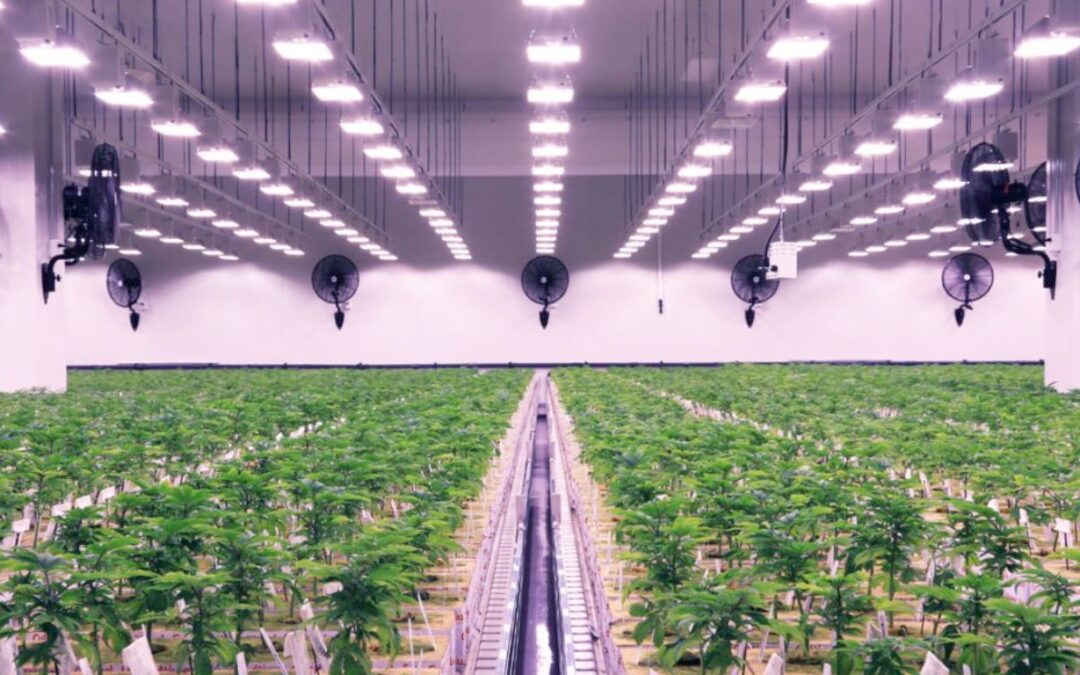
by Grow Up Conference | Nov 25, 2024 | Media Partners, Stratcann
Cannara Biotech Inc. brought in $22.1 million in net revenue from its cannabis operations in the three months ended August 31, 2024 (Q4 2024), and a net income of $5 million.
This represented a year-over-year increase in net revenue for the company compared to $17.4 million in net revenue in the same quarter in the previous year but a decrease in net income from $5.5 million.
Cannara owns and operates two Quebec‐based cultivation facilities. The first, in Farnham, is 635,000 sq ft, of which 170,000 sq ft is licensed for cultivation and 414,000 sq ft of leased warehouse space.
The second, a greenhouse facility in Valleyfield, is home to 600,000 sq ft of growing space and a 200,000 sq ft rooftop greenhouse.
The company also has two real estate operations related to the Farnham Facility.
Gross revenue from Cannara’s real estate operations for Q4 2024 was $943,948, while net income was $876,810. This represents a slight increase from the same period in 2023, with net revenue of $928,449 and net income of $861,315.
Total net income for Cannara, including both its cannabis operations and retail holdings, minus a $2.1 million net loss categorized as “other”, was $3.8 million for the three months ended August 31, 2024.
On August 16, 2024, Cannara announced that it had achieved its highest national market share of 3.2% in July 2024, based on estimated sales data provided by HiFyre Retail Analytics, Licensed Producer Sales Nationally, for the period of July 2024, placing Cannara as the 9th largest licensed producer in Canada by market share.
As of August 31, 2024, Cannara’s distribution network services seven provinces: Québec, Ontario, Saskatchewan, Alberta, British Columbia, Manitoba, and Nova Scotia. Québec and Ontario are currently the most significant markets. The company sells under the brands Tribal, Nugz, and Orchid CBD. Cannara has also completed sales of cannabis to Israel.
As of August 31, 2024, the Company and its subsidiaries had 363 employees.
“Fiscal 2024 was a transformative year for Cannara, showcasing the resilience of our business model and the strength of our execution strategy,” said Zohar Krivorot, President & CEO. “With a 3.2% national market share and a leading position in Québec, we have proven our ability to deliver sustained growth in a challenging cannabis market. By investing in our state-of-the-art production facilities, powered by the lowest-cost electricity in the country, we continue to produce premium cannabis products at an unmatched value. Our three flagship brands—Tribal, Nugz, and Orchid CBD—launched in 2021, have not only endured the challenges of this competitive industry but continue to thrive, achieving quarter-over-quarter growth.”
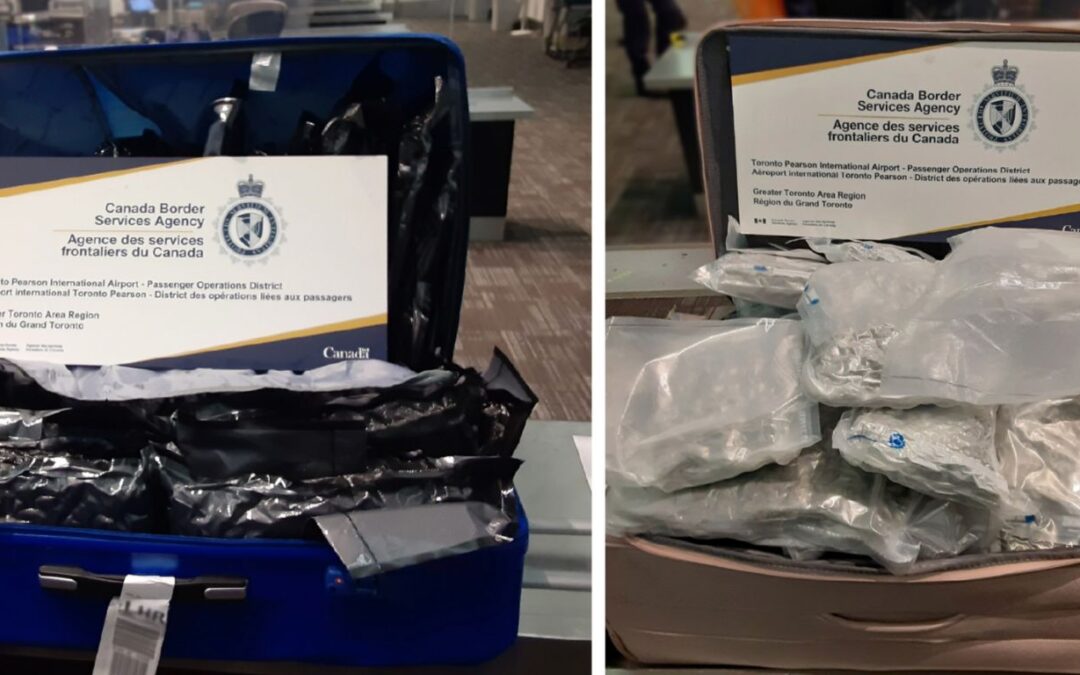
by Grow Up Conference | Nov 25, 2024 | Media Partners, Stratcann
The Canada Border Services Agency (CBSA) found approximately 62 kilograms of concealed cannabis in an outbound baggage examination on October 23, destined for London, UK.
The CBSA shared the info in a press release on November 25. The traveller, Justyne Burger-Samueles (26), was charged with Export contrary to section 11(2) of the Cannabis Act and will appear in court on December 5, 2024.
Police give an estimated value of the drugs as approximately CAD$248,000. The penalties for cannabis importation in the UK can be up to 14 years in prison.
“The CBSA remains committed to stopping the illegitimate flow of cannabis across our borders,” said Lisa Janes, Regional Director General, Canada Border Services Agency, Greater Toronto Area Region. “This seizure is another great example of our work in disrupting illegal cross-border activity and our partnership with the RCMP.”
Such seizures have become more common in recent months. In a media release on November 19, the RCMP and CBSA say the Canada Border Services Agency found approximately 40 kilograms of cannabis concealed inside luggage destined for London. Police say this was worth CAD$120,000.
RCMP arrested Zubir Mahida (21 yrs.) with Export contrary to section 11(2) of the Cannabis Act. Zubir Mahida appeared for a hearing and was released on an undertaking to appear in Brampton court on November 28, 2024.
Two Chinese nationals were recently jailed in the UK for importing cannabis from Canada as part of what authorities said was a “significant criminal enterprise.” The two students allegedly recruited other students to receive packages of cannabis at student housing in the city.
The Canada Border Services Agency (CBSA) found approximately 40 kilograms of cannabis concealed inside the luggage of a man scheduled to fly to London, UK, on October 21.
Earlier this year, the Canadian Border Services Agency (CBSA) seized 140 pounds of cannabis at the Halifax Stanfield International Airport destined for the UK. In January, the CBSA intercepted 310 kg of cannabis in a container exported from Canada to the UK at Montréal Marine and Rail Services.
In September, four Canadians were caught trying to bring cannabis into the UK. On October 29, 2024, CBSA officers intercepted a package containing 171.5 kg of dried cannabis being exported to Belgium at the Montréal Trudeau airport.
A post from November 21 on the CBSA’s Youtube account says 347 kg of cannabis and one kilogram of hash was seized at the Port of Halifax in October, and 51 kilograms of cannabis from the Vancouver Airport. The destinations of those seizures were not provided.
Featured image shows 44 kg of cannabis recently seized by CBSA.

by Grow Up Conference | Nov 25, 2024 | Media Partners, Stratcann
Israel’s Ministry of Health takes issue with tariffs proposed by Israel’s Ministry of Economy on cannabis imported from Canada.
In a report published on November 10, Israel’s Ministry of Economy has proposed levies of up to 175% on Canadian cannabis products being sold in the country’s medical cannabis program.
The investigation, which was first announced this past January, was based on allegations of “product dumping” of Canadian cannabis into the Israeli market.
In July, the government agency released its preliminary report on the topic, proposing tariffs from 63% to 369%, depending on the cooperation of the companies involved, before settling on lower rates in the most recent report in November.
These rates were based on the Ministry of Economy’s investigation into domestic pricing for cannabis in Canada.
But the head of the economy, regulation and innovation at the country’s Ministry of Health, Ran Ridnik, has sent a letter to the Ministry of Economy’s Dany Tal expressing his dismay at the proposed tax rates and the process that was followed to come to such a determination. Tal has led the investigation process and reports.
Ridnik’s letter, as first reported by Cannabis Magazine, said he is disappointed that the Ministry of Economy did not consult with the Ministry of Health, which manages the cannabis file in Israel, in their investigation.
Ridnik also takes issue with the methods the Ministry of Economy used to determine the proposed tariffs, which looked at wholesale prices in Canada, and said that such a move would only increase the overall price of cannabis in Israel and encourage consumers to purchase from the illegal market rather than Israel’s regulated medical cannabis market.
[Translated] “The economic impact of the one-time levy will not be great, but it will encourage a black market and the transit of medical cannabis through unwanted intermediate stations,” Ridnik’s letter says, in part. “Even if it was correct to impose a floating levy, it had to be across the board on every import whatsoever. Given that this is not the recommendation, imposing a levy only on a specific country is the worst possible way.”
Ridnik says his Ministry of Health will not be able to defend the Ministry of Economy’s decision.
“We, as the professionals responsible for the field, will not be able to support the supervisor’s position or defend her professional logic in court or in any other proceeding,” read part of his letter.
Israel’s Ministry of Health did not respond to a request for comment by the time of this publication.
Related Articles

by Grow Up Conference | Nov 25, 2024 | Media Partners, Psychedelic News Wire
Tobacco is used by more than one billion people in the world. So it comes as no surprise that tobacco use disorder is highly prevalent. Tobacco contains nicotine, an addictive drug that quickly boosts an individual’s mood. It also makes an individual want to use it more while also making it hard for them to quit.
Halting the use of tobacco is hard, primarily because of the disorder’s withdrawal symptoms, like irritability and anxiety.
A recently published review of studies on psychedelics and the use of tobacco has concluded that psychedelics may help combat tobacco use disorder. Of all the papers chosen to be reviewed, only 8 met the inclusion criteria, with 4 of them coming from one study.
They explained that investigating the potential of psychedelics as a treatment for nicotine dependence could offer a new therapeutic option to address tobacco use disorder given the significant consequences of tobacco use on society, health and the economy as well as the limited effectiveness of current treatments.
They added that lack of relevant studies was a huge obstacle to deriving conclusions about the potential use of psychedelics like psilocybin in combating addiction to nicotine.
Despite this, the researchers emphasized that their findings warranted further clinical research into the treatment of tobacco use disorders using psychedelics. Their findings were reported in the Discover Mental Health journal.
Now the researchers are looking forward to results from a clinical trial being conducted by investigators at Johns Hopkins University. The trial is investigating the effectiveness of administering psilocybin therapy in conjunction with a smoking cessation program for patients who are nicotine-dependent.
Related research at the institution is also comparing the effectiveness of psilocybin to that of an active placebo in smoking cessation. This comes after the National Institute on Drug Abuse awarded a grant to researchers at the University of Alabama at Birmingham, New York University, and Johns Hopkins University in 2021 to investigate how psilocybin helps individuals control their cigarette addiction.
A different study by researchers at Washington State University determined that CBD could also reduce tobacco cravings, which made it easier for users to quit. The study demonstrated that low CBD doses inhibited an enzyme linked to nicotine processing in the body, thus preventing cravings.
The use of tobacco has also been declining over the last couple of years. An analysis released by Gallup in 2023 determined that more individuals in America were smoking cannabis or consuming marijuana-infused edibles in comparison to the number of individuals who’d smoked cigarettes.
Many firms, such as Compass Pathways PLC (NASDAQ: CMPS), are exploring the therapeutic application of psychedelics in managing a host of other diseases and mental health conditions. With time, what psychedelics can or cannot do will become clearer as these efforts reach their logical conclusions.
About PsychedelicNewsWire
PsychedelicNewsWire (“PNW”) is a specialized communications platform with a focus on all aspects of psychedelics and the latest developments and advances in the psychedelics sector. It is one of 60+ brands within the Dynamic Brand Portfolio @ IBN that delivers: (1) access to a vast network of wire solutions via InvestorWire to efficiently and effectively reach a myriad of target markets, demographics and diverse industries; (2) article and editorial syndication to 5,000+ outlets; (3) enhanced press release enhancement to ensure maximum impact; (4) social media distribution via IBN to millions of social media followers; and (5) a full array of tailored corporate communications solutions. With broad reach and a seasoned team of contributing journalists and writers, PNW is uniquely positioned to best serve private and public companies that want to reach a wide audience of investors, influencers, consumers, journalists and the general public. By cutting through the overload of information in today’s market, PNW brings its clients unparalleled recognition and brand awareness. PNW is where breaking news, insightful content and actionable information converge.
To receive SMS alerts from PsychedelicNewsWire, text “Groovy” to 888-902-4192 (U.S. Mobile Phones Only)
For more information, please visit https://www.PsychedelicNewsWire.com
Please see full terms of use and disclaimers on the PsychedelicNewsWire website applicable to all content provided by PNW, wherever published or re-published: https://www.PsychedelicNewsWire.com/Disclaimer
PsychedelicNewsWire
San Francisco, CA
www.PsychedelicNewsWire.com
415.949.5050 Office
Editor@PsychedelicNewsWire.com
PsychedelicNewsWire is powered by IBN

by Grow Up Conference | Nov 25, 2024 | Grow Opportunity, Media Partners
(CNW) Drummondville, QC – Bleuh, a leading recreational cannabis brand in Quebec, is pleased to announce the appointment of Taylor Matthews as Vice President of Sales. This milestone reflects Bleuh’s thoughtful approach to growth as it prepares to expand its operations into Ontario.
Taylor Matthews brings a wealth of experience in trade marketing and sales leadership across Canada with a proven ability to connect brands with consumers in meaningful ways. Formerly the Director of Trade Marketing at Cronos Group and Trade Marketing Manager at Jamieson Wellness, Taylor has consistently delivered results by building strong partnerships, fostering team collaboration, and executing strategies that resonate with today’s consumers.
“We’re excited to welcome Taylor to the Bleuh team,” said Dany Lefebvre, Founder of Bleuh. “His leadership style and deep understanding of both the cannabis and consumer packaged goods sectors align perfectly with our brand’s focus on experiences and authenticity. This is a pivotal step forward as we thoughtfully bring Bleuh’s vision to new markets.”
As Vice President of Sales, Taylor will oversee the development of sales strategies tailored to Ontario’s cannabis community, focusing on collaboration with retail partners, strengthening consumer connections, and ensuring Bleuh’s products elevate everyday experiences.
“The Ontario cannabis market represents an incredible opportunity, and I’m thrilled to lead Bleuh’s efforts in this vibrant region,” said Taylor Matthews. “By fostering trust, collaboration, and memorable experiences, I’m confident we can bring the Bleuh brand to life for Ontario consumers while staying true to its core values.”
This announcement underscores Bleuh’s dedication to delivering premium, consistent cannabis products while growing thoughtfully and maintaining the trust of its consumers.

by Grow Up Conference | Nov 25, 2024 | Grow Opportunity, Media Partners
(CNW) Calgary – Decibel Cannabis Company Inc., a market leader in premium cannabis and extract manufactured products, is pleased to announce that it has completed a second and final closing of its previously announced (Oct. 30) non-brokered private placement of common shares in the capital of the company at a price of $0.06 per common share.
Under the second closing of the offering, Decibel issued 19,647,776 Common Shares for gross proceeds of approximately $1,178,867. The second closing was in addition to the previously announced (Nov. 4) first closing, whereby Decibel issued 33,503,864 Common Shares for gross proceeds of approximately $2,010,232. No finders’ fees were paid in connection with either the first or second closing of the Offering.
The proceeds of the Offering will be used by the Company for general working capital purposes and to assist with the integration of AgMedica BioScience Inc. and its business, which was acquired on October 28, 2024, into the Company’s overall business.
The Offering is subject to the receipt of all regulatory approvals including the final approval of the TSX Venture Exchange. The Common Shares issued pursuant to the Offering are subject to a hold period expiring four months and one day from the date of issuance, other than with respect to Common Shares issued to certain employees of the Company.
Certain directors and officers of the Company subscribed for an aggregate of 19,460,061 Common Shares in the first and second closings of the Offering. The insiders’ participation in the Offering constitutes a “related party transaction” as defined under Multilateral Instrument 61-101 – Protection of Minority Security Holders in Special Transactions. Such participation is exempt from the formal valuation and minority shareholder approval requirements of MI 61-101 as neither the fair market value of the securities acquired by insiders, nor the consideration for the securities paid by such insiders, exceed 25% of the Company’s market capitalization. The Company did not file a material change report more than 21 days before the date of the first closing or the second closing of the Offering because the details of the participation in each closing of the Offering by the related parties was not settled at the applicable times.
The securities offered have not been, and will not be, registered under the United States Securities Act of 1933, as amended, or any U.S. state securities laws and may not be offered or sold in the United States absent registration or an available exemption from the registration requirement of the U.S. Securities Act and applicable U.S. state securities laws. This news release shall not constitute an offer to sell or the solicitation of an offer to buy, nor shall there be any sale of these securities, in any jurisdiction in which such offer, solicitation or sale would be unlawful.

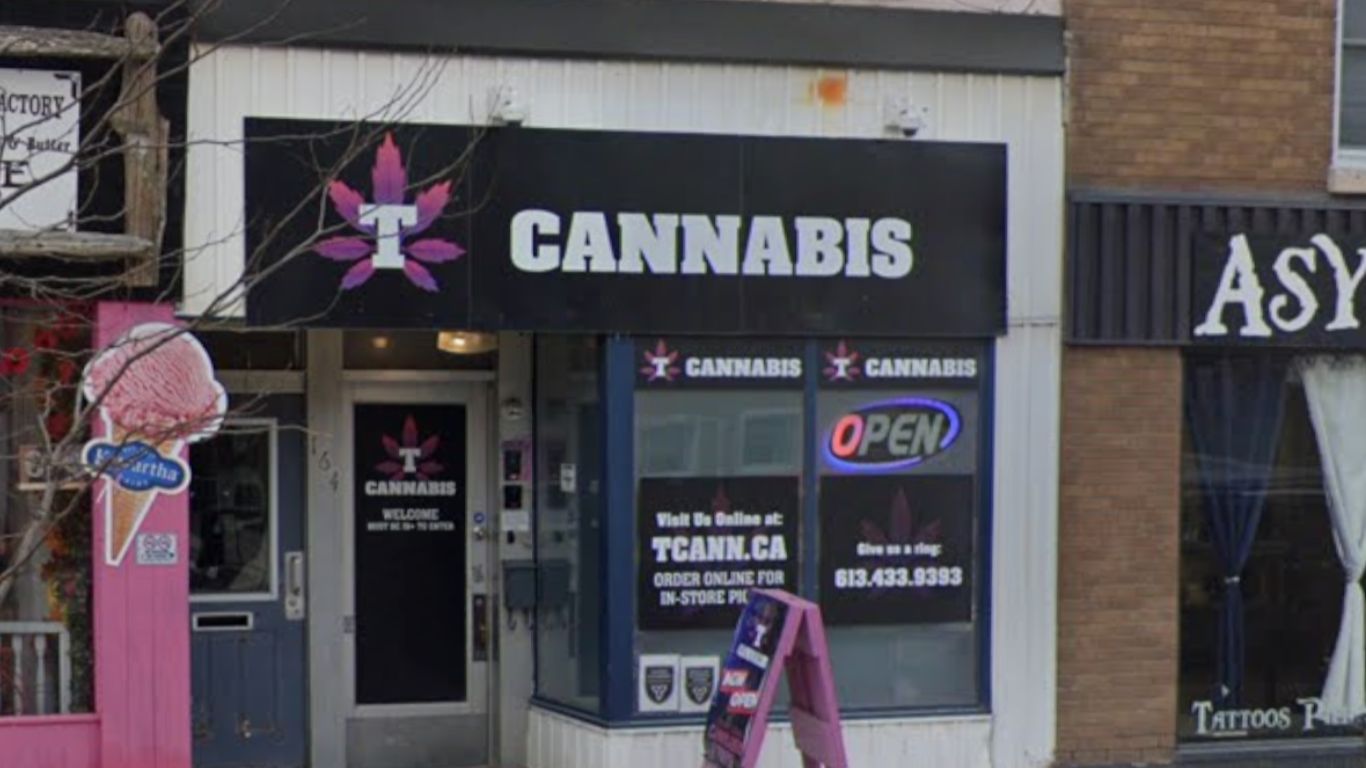


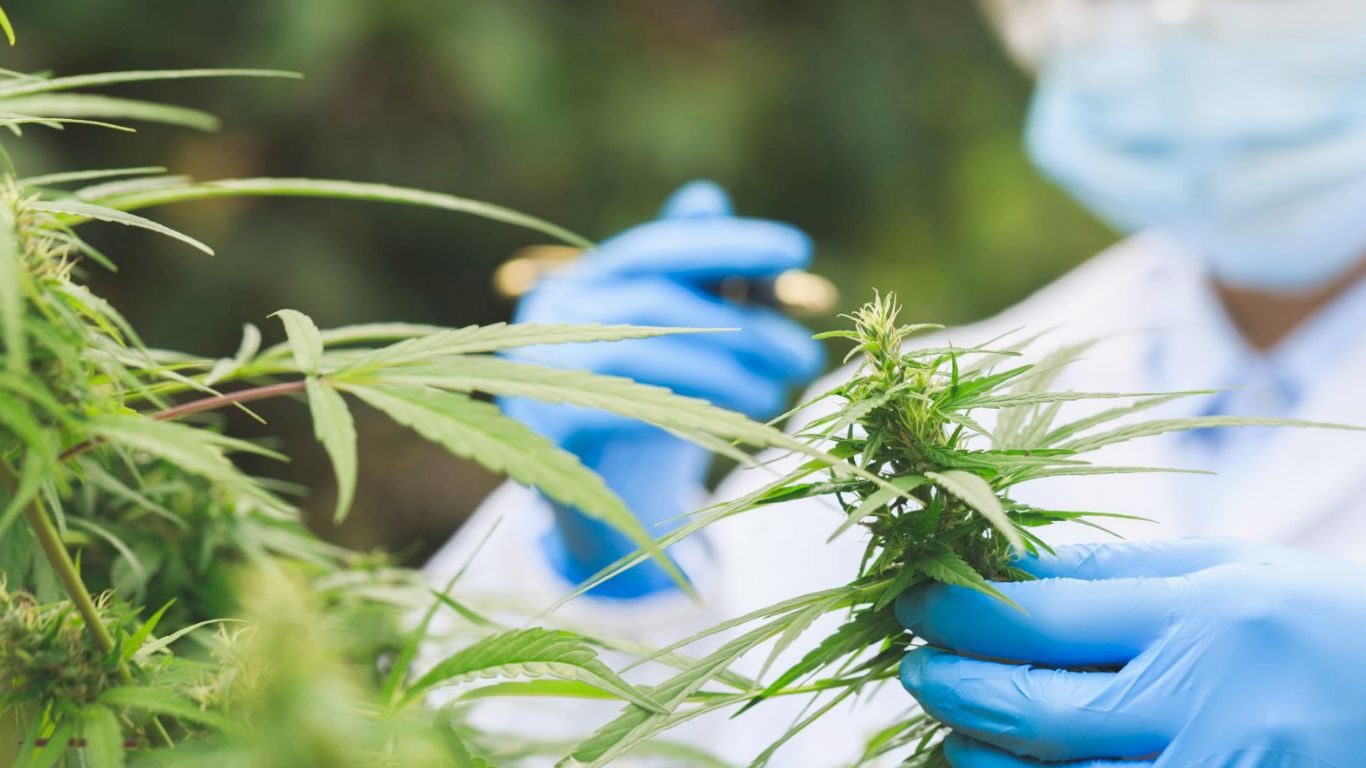





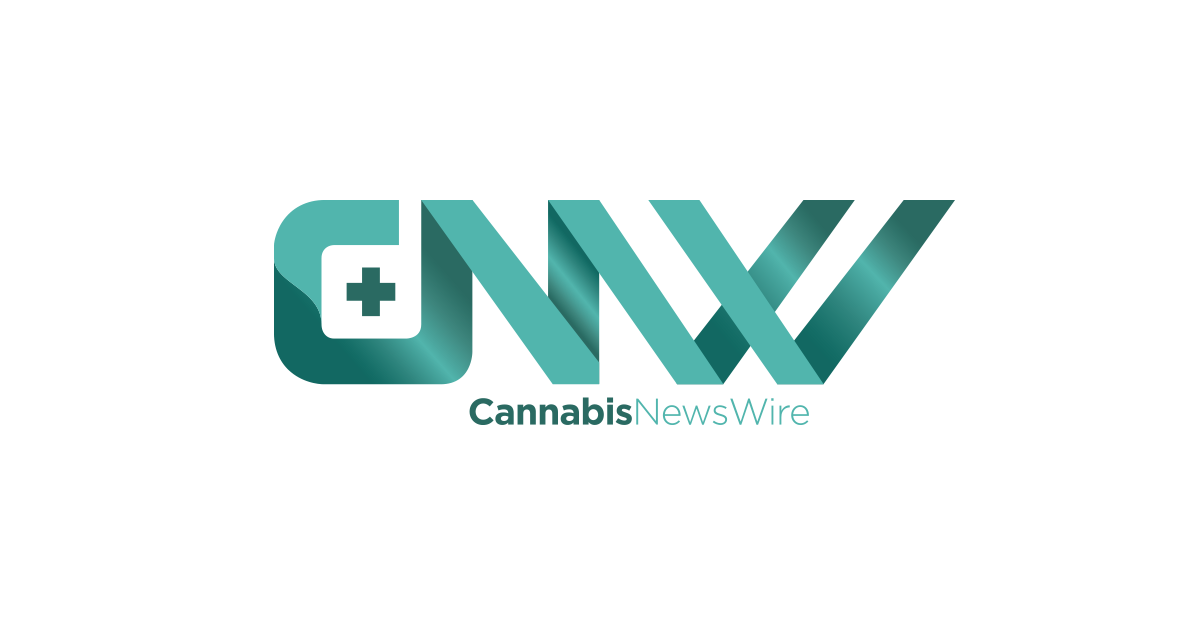

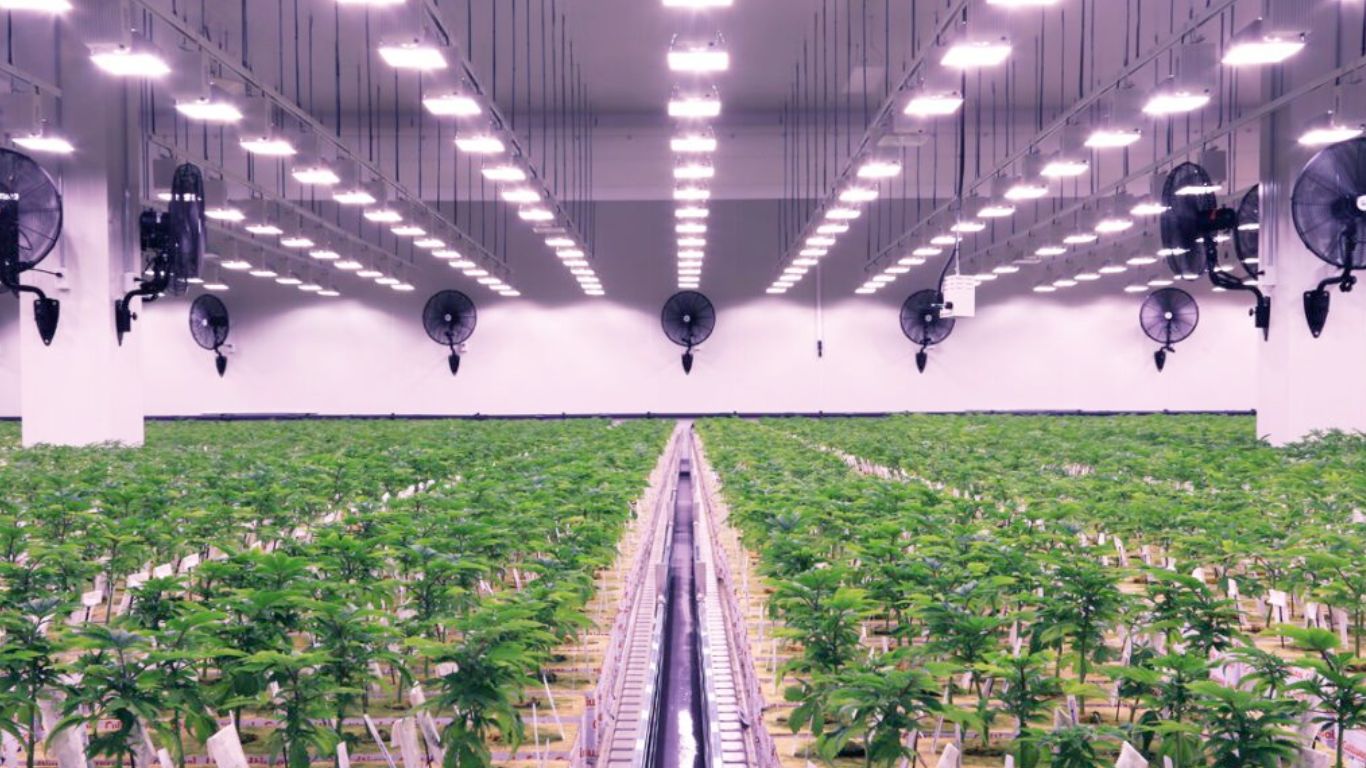

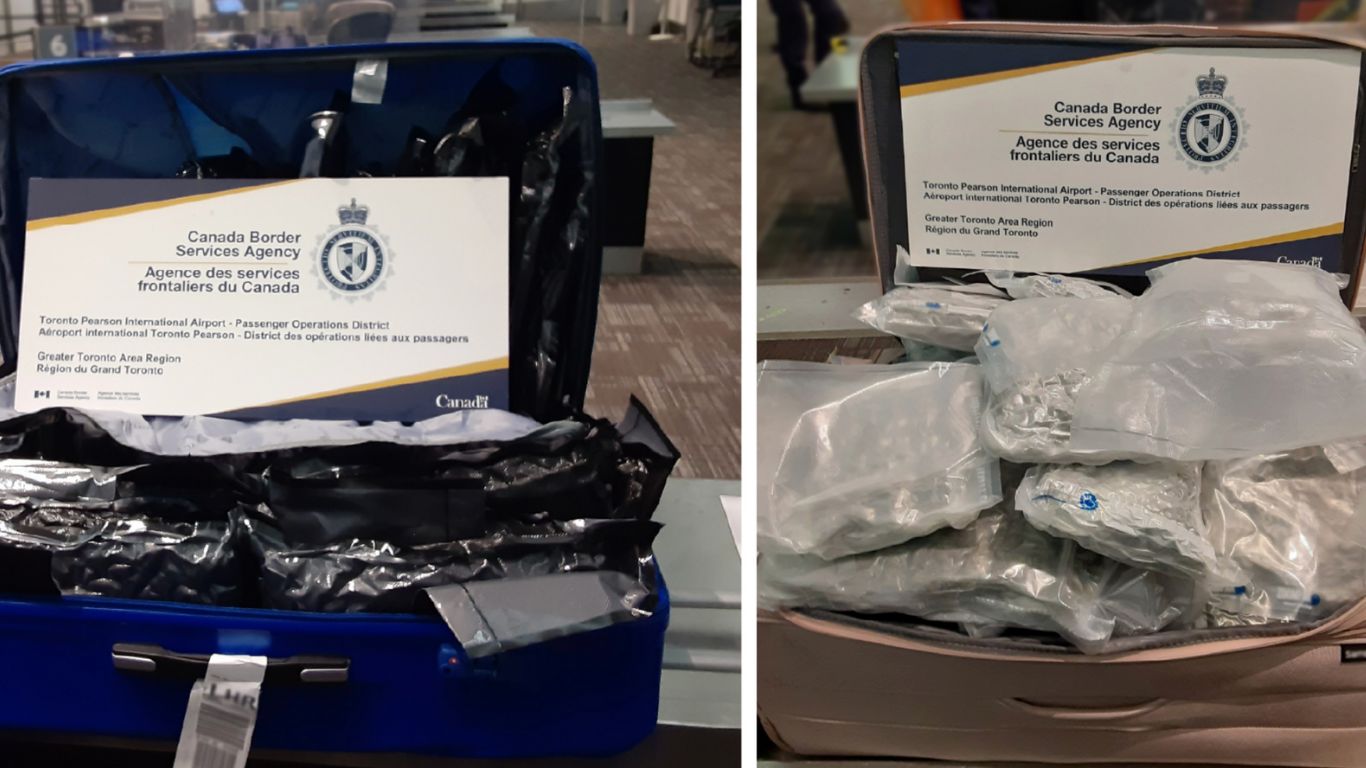




Recent Comments